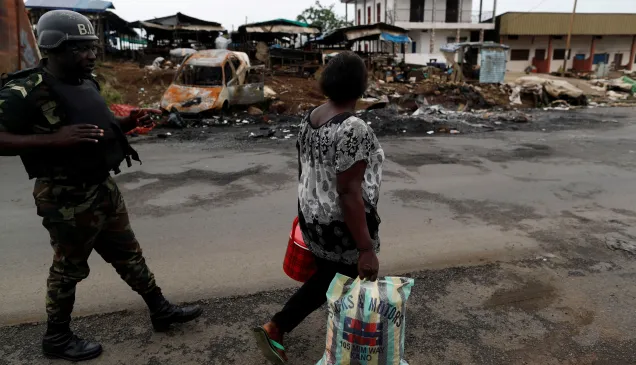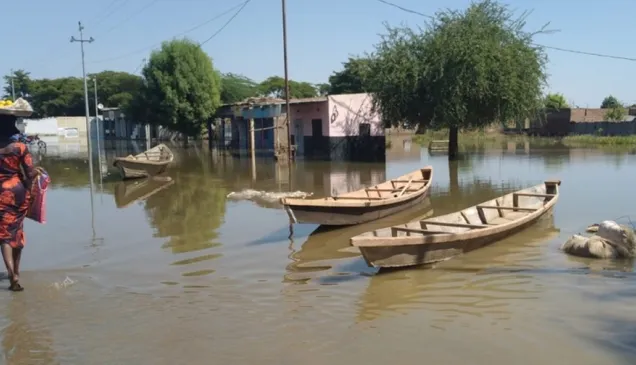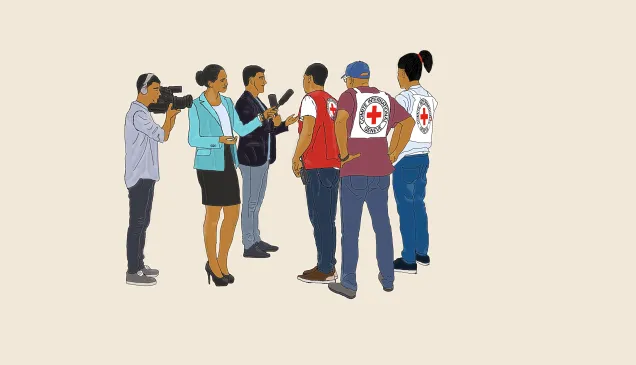Cameroon: Portraits of women who have left everything behind
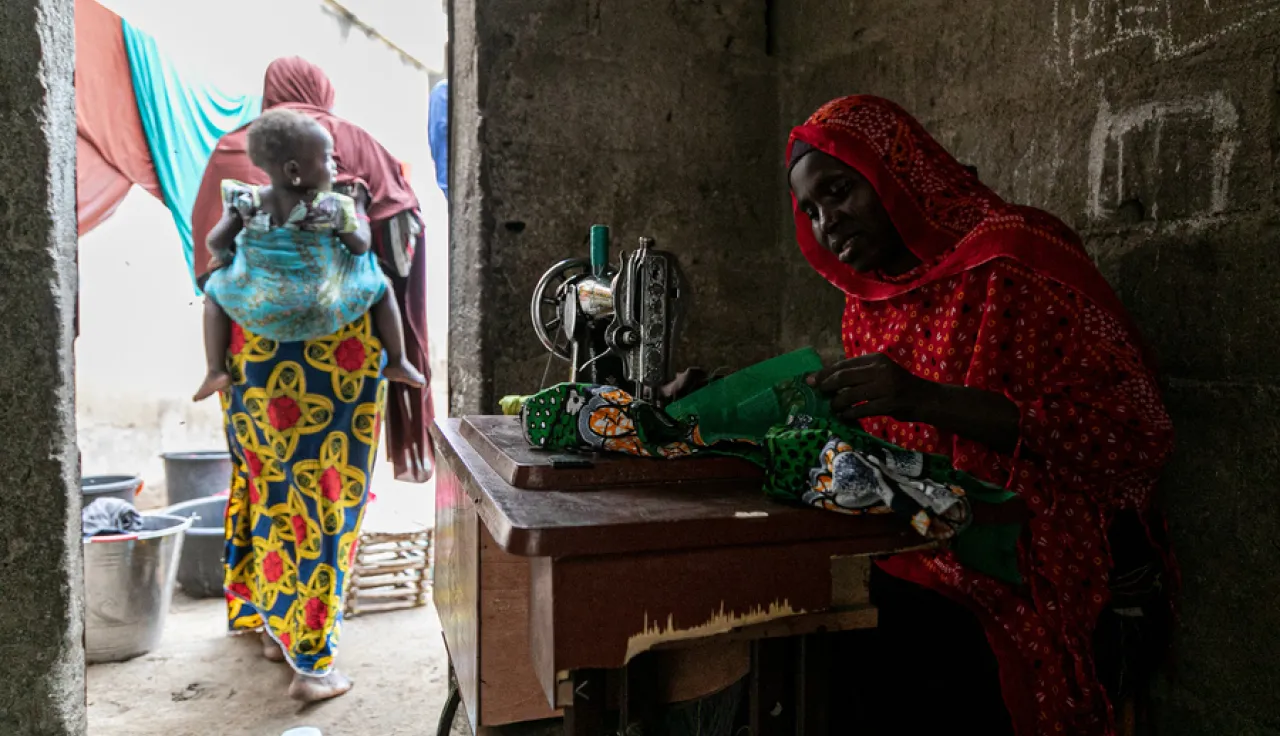
Since 2014, the Lake Chad crisis has been affecting the people of Cameroon’s Extreme North region. Hundreds of thousands have fled, most of them remaining inside the country. In 2016, people in North-West and South-West regions began to suffer armed attacks. Many of them have likewise had to flee their homes to escape the violence. Those who have fled include large numbers of women. They are fighting bravely day by day for their own survival and that of their families. We spoke to a few of them.
Cameroon: the Anglophone Crisis
Armed violence in North-West and South-West regions have forced hundreds of thousands to flee their homes since 2016. Séraphine, Victorine and Dayan are just three of them. They lost everything, and now they are fighting to rebuild their lives and look after their families.
Séraphine (20)
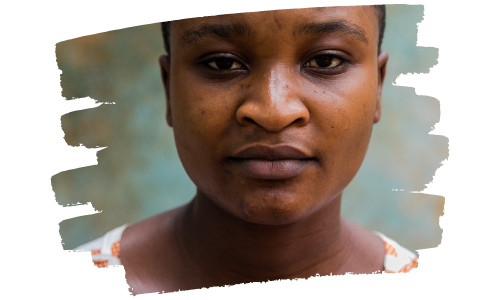
Séraphine was living in Bamenda when the Anglophone Crisis began. Repeated attacks made it dangerous to go to school. Her parents were worried, and decided to send her to the Cameroonian capital Yaoundé along with her three sisters and her brother. Séraphine had to look after them at the same time as continuing her studies. This was a difficult time for the young woman, who had to hold everything together on her own.
The ICRC provided her with cash so that she could look after herself and her little brothers. She took the courageous step of setting up a small business selling patties, while continuing her studie
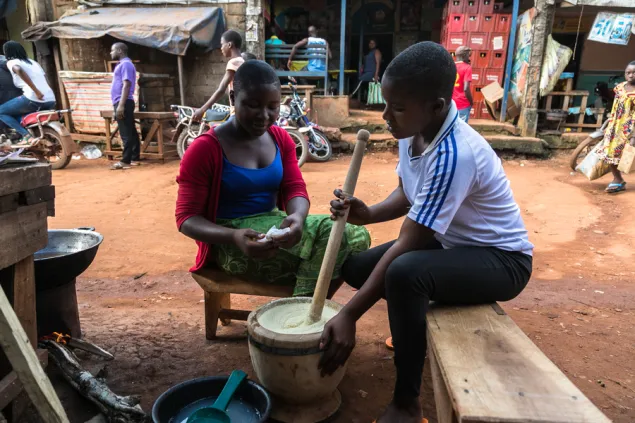
Séraphine (right) and her sister Clementine (left). Both are from Bamenda. Here, they are preparing dough to make patties. Etoug-Ebé, Cameroon, June 2021.
Victorine (34)
Victorine has also fled the North-West region, and is now living in Douala. Armed men raped her in her home village, and she found herself pregnant. She gave birth to triplets. Looking after them was very hard, as she had no source of income. Lack of money also prevented her from sending them to school.
But that did not stop Victorine. She gave her children their first lessons herself, teaching them to read, write and do sums. She asked children who were attending school what they had learned, and then passed it on to her children. When the ICRC provided her with a grant, she was able to fulfil two of her dreams: send her children to school and open a hairdresser's.
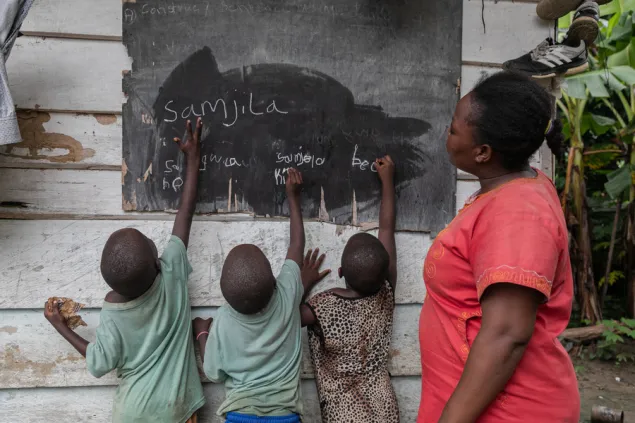
“I give my triplets lessons at home. I told them that all parents did that. That’s their ‘school’”. Douala, Cameroon. July 2021.
Dayan (19)
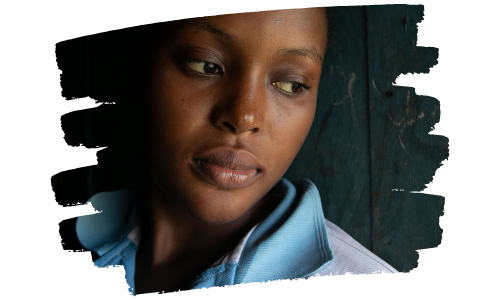
In 2016, when the Anglophone Crisis began, Dayan was in "cinquième" (equivalent to UK Year 8/US 7th grade) in Muyuka, South-West region. The deteriorating security situation forced to stop going to school from 2016 to 2018. In 2019 she had to flee her home and move in with her mother in Douala. But a year later, her mother died. So at just 19, Dayan was left in charge of her two younger sisters.
Now Dayan is in her final year of school, and dreams of becoming a book-keeper. The ICRC is supporting her by paying her rent and providing a monthly grant for her twin sisters and her.
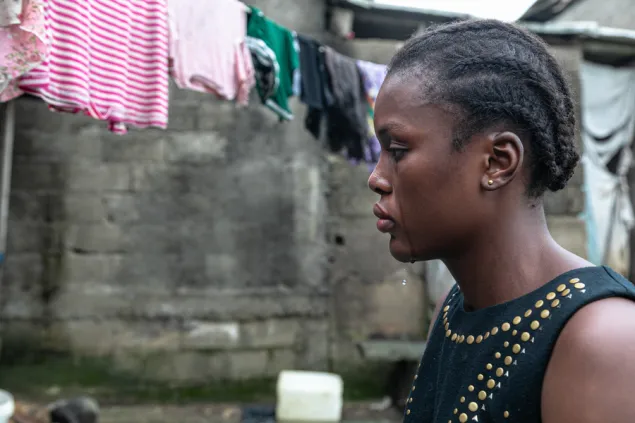
“My mother was like God to me. She died in my arms last year. I think of her every day.” Dayan. Douala, Cameroon, June 2021.
Armed conflict in the Far North region bordering Lake Chad.
People living in the Lake Chad region are suffering the consequences of a humanitarian crisis that started in Nigeria but has now spread to Cameroon, Chad and Niger. Violence has been on the increase in the Far North region since 2014, forcing hundreds of thousands of people to flee, including Maïramou, Hadidja and Falta.
Maïramou (35)
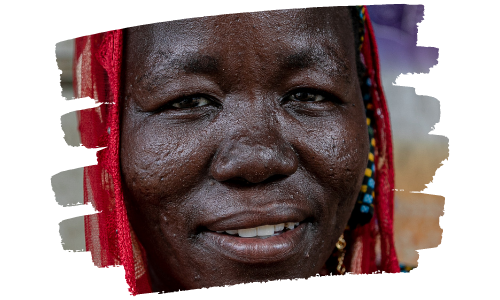
Like so many others, Maïramou had to flee her home to escape death. She moved from Amchidé to Maroua to escape the consequences of the Lake Chad crisis. For several weeks, she had no roof over her head.
"When I arrived in Maroua in 2014, I didn't know anyone. During the day, I did the washing up in the town-centre restaurants, with my baby on my back. I had nowhere to live, so he and I slept near a service-station."
Today, Maïramou has three children. She has started a small business with financial support from the ICRC.
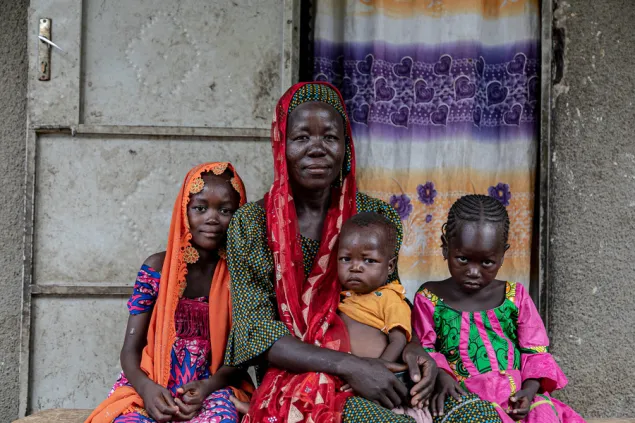
Maïramou (wearing a red headscarf) and her children, in front of her studio. Maroua, Cameroon. July 2021.
Hadidja (48)
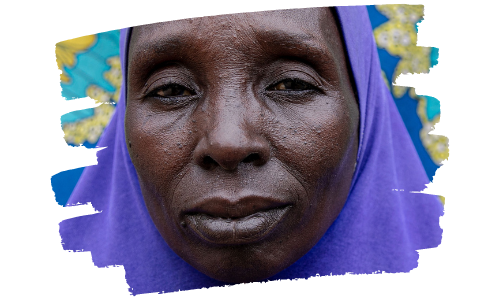
Hadidja has six children. Before, she lived in Amchidé, Far North region. Her husband was a traditional healer and she sold patties.
"We had everything we needed in our little house," she tells us.
As a result of the Lake Chad crisis, neighbouring villages came under attack and Hadidja's work suffered. Then her own village was attacked. She had to leave fast, to save her own life and those of her children. In the chaos, she became separated from her husband. She has recently discovered that he is alive and living in Chad, but he has no job and refuses to come home because he feels he would just be giving his wife another mouth to feed.
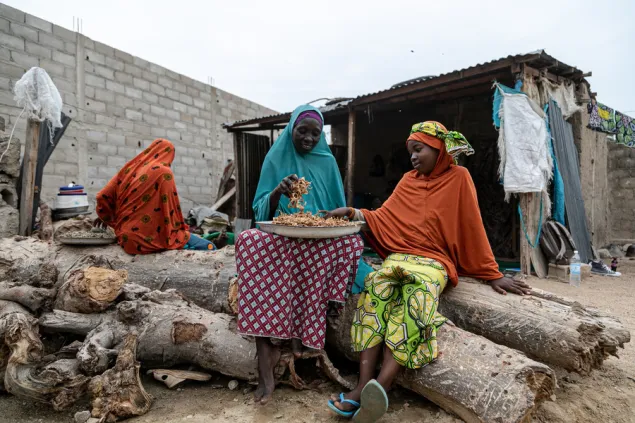
Hadidja and one of her daughters in front of their studio. Maroua, Cameroon. July 2021.
Falta (27)
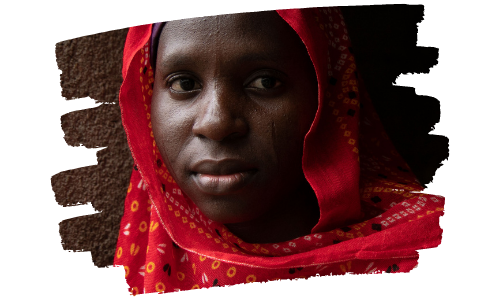
Falta was expecting her second child when she had to flee the violence in her village, in Cameroon's Far North region. That was in 2014. Since then, she has had no news of her husband, who was the sole breadwinner for his little family.
Over time, Falta has learned to earn enough for herself and her children. The ICRC provided her with a sewing machine so she could set up as a business. Now, her talents as a seamstress are generating an income.
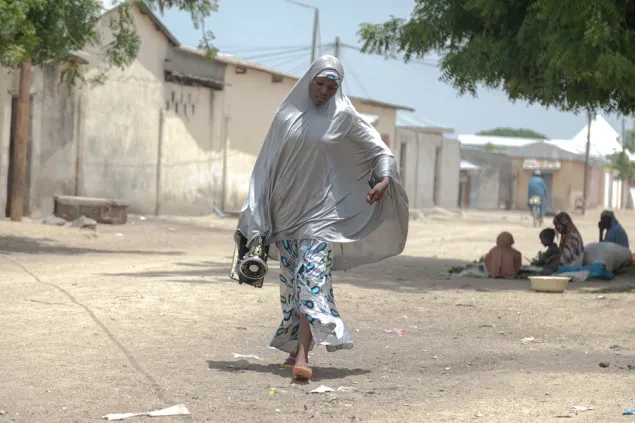
Falta Oumar with her sewing machine. Maroua, Cameroon. July 2021.
Séraphine, Victorine, Dayan, Maïramou, Hadidja and Falta. They each have a sad story to tell. But they each have another story, of finding the strength to rebuild their world, piece by piece. One step at a time.
In 2021, the ICRC provide financial support to over 15,000 families affected either by the armed conflict in Cameroon's Far North region or by the armed violence in North-West and South-West regions. These cash payments allow people to launch activities through which they can support themselves. A monitoring process ensures that the funds are being used as agreed.

